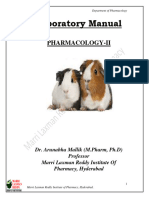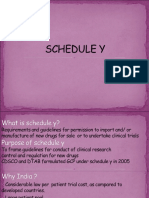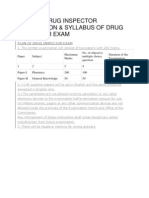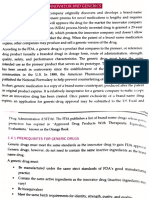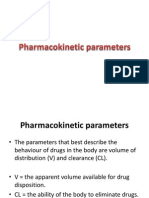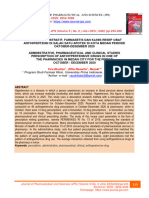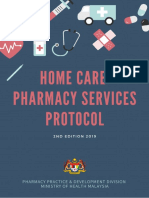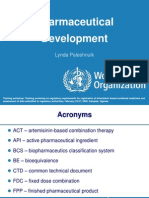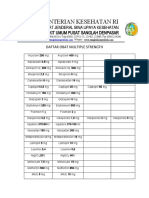List of submissions for IND
An Investigational New Drug (IND) submission to regulatory authorities typically requires a
comprehensive set of studies to demonstrate the safety and initial efficacy of the
investigational product. The specific studies may vary depending on the nature of the drug, its
intended use, and regulatory requirements. Here is a general list of studies commonly needed
for an IND submission:
1. Pharmacology Studies:
o Pharmacodynamics (PD) studies to understand the drug's mechanism of
action and its effects on biological systems.
o Pharmacokinetics (PK) studies to characterize the absorption, distribution,
metabolism, and excretion (ADME) of the drug.
o Drug-drug interaction (DDI) studies, if applicable, to assess potential
interactions with other medications.
o Bioavailability and bioequivalence studies to compare formulations or routes
of administration.
2. Toxicology Studies:
o Acute toxicity studies to assess initial safety at high doses.
o Subchronic and chronic toxicity studies to evaluate safety over longer
durations of exposure.
o Genotoxicity studies to assess potential damage to genetic material.
o Carcinogenicity studies, if warranted based on the duration and intended use
of the drug.
3. Safety Pharmacology Studies:
o Central nervous system (CNS) safety pharmacology studies to evaluate
potential effects on neurological function.
o Cardiovascular safety pharmacology studies to assess effects on cardiac
function and hemodynamics.
o Respiratory and renal safety pharmacology studies, as applicable.
4. Clinical Study Plan:
o Phase 1 Clinical Trial Protocol outlining the design, objectives, and
methodology of the first-in-human study.
o Human pharmacokinetic and pharmacodynamic studies based on
preclinical findings.
o Safety and tolerability assessments in healthy volunteers or patients,
depending on the phase of the trial.
5. Manufacturing Information:
o Chemistry, Manufacturing, and Controls (CMC) information detailing the
manufacturing process, drug substance characterization, and formulation.
o Stability studies to demonstrate the stability of the drug product under
specified storage conditions.
6. Regulatory Documentation:
o Investigator's Brochure (IB) summarizing all relevant preclinical and
clinical data.
o Study Protocols for all proposed studies, including pharmacology,
toxicology, and clinical trials.
o Summary of Preclinical Data providing an integrated summary of the
nonclinical studies conducted.
� o Environmental Risk Assessment, if required by regulatory authorities.
7. Ethical Considerations:
o Institutional Review Board (IRB) Approval for clinical trials ensuring
ethical conduct and participant safety.
o Informed Consent Forms (ICFs) for study participants detailing the study
objectives, risks, and benefits.
8. Other Supporting Documentation:
o FDA Form 1571 or equivalent submission forms required by the regulatory
authority.
o Financial Disclosure Information and Conflict of Interest Statements.
o Data Management and Statistical Analysis Plans for clinical studies.






